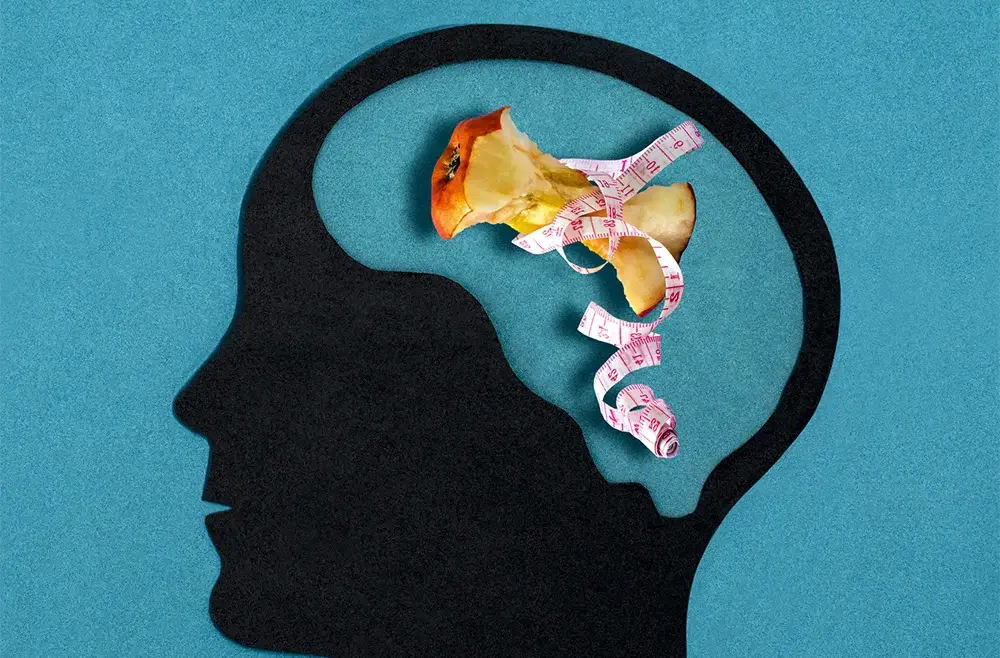Eating disorders are serious mental health conditions that can have a negative impact on your physical and emotional health. If you are struggling with an eating disorder, it is important to get help. In this blog post, we will discuss the different types of eating disorders, the signs and symptoms, and how to get treatment.
Contents
What Are Eating Disorders?
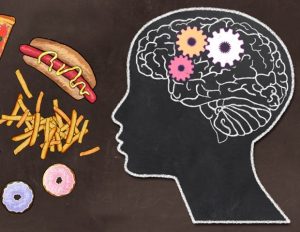 Eating disorders are illnesses that are characterized by abnormal eating habits. Eating disorders can involve too much or too little food intake and can have a negative impact on a person’s physical and emotional health.
Eating disorders are illnesses that are characterized by abnormal eating habits. Eating disorders can involve too much or too little food intake and can have a negative impact on a person’s physical and emotional health.
Sometimes these disorders are referred to as “binge eating disorder” or “bulimia nervosa.”
There are many different types of eating disorders, but the most common are anorexia nervosa and bulimia nervosa. Sometimes these disorders are a result of genetics, but they can also be caused by environmental factors, such as stress or a traumatic event. These disorders often occur during adolescence or early adulthood, but they can also occur in children and older adults.
Types of Eating Disorders
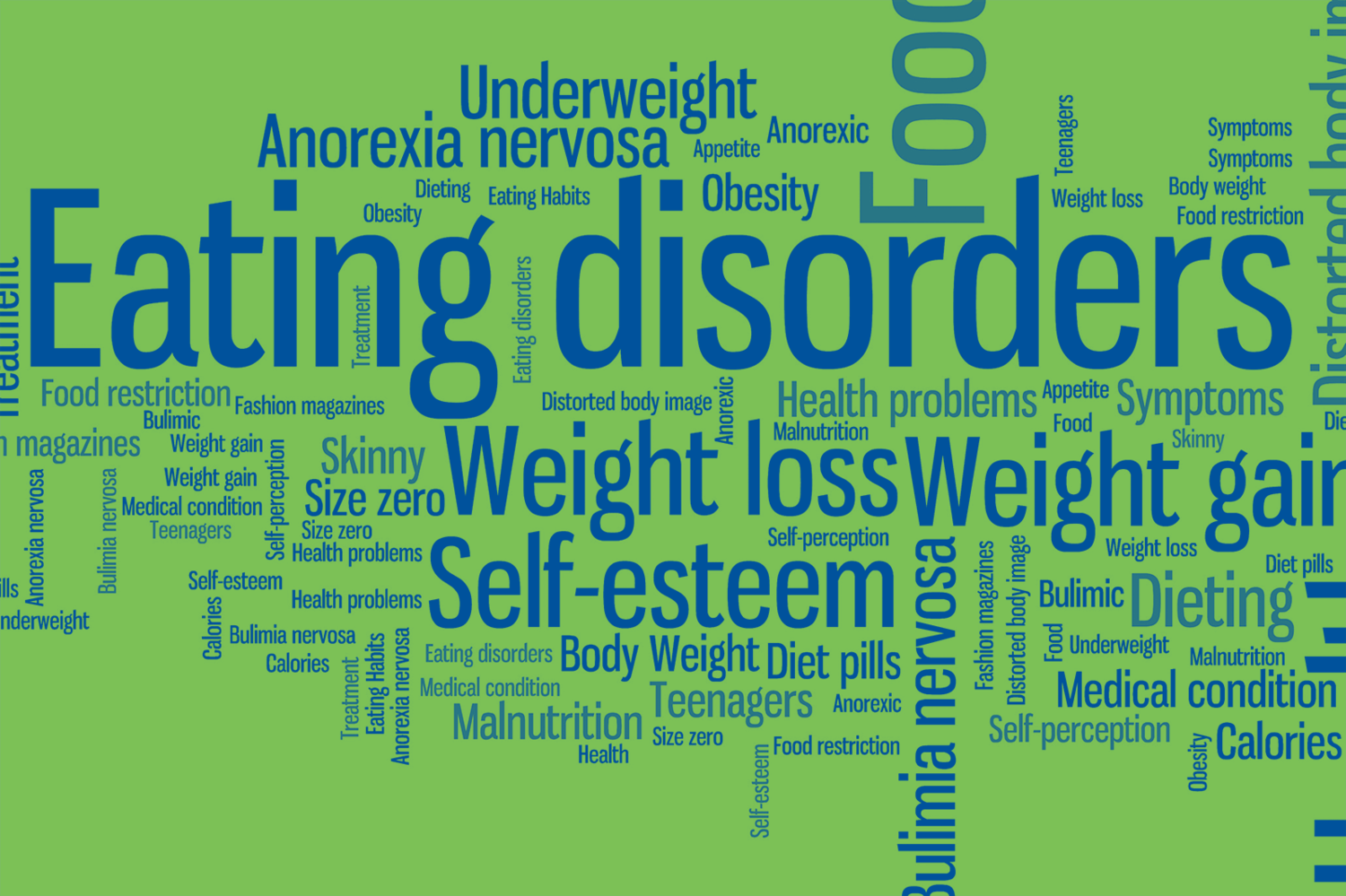
There are many types of eating disorders, but the most common are anorexia nervosa and bulimia nervosa.
Anorexia Nervosa
People with anorexia nervosa have a distorted view of their body image and often think they are overweight, even though they are actually very thin. As a result, these people will severely restrict their food intake in order to lose weight. Some people with this disorder may also engage in binge eating and then purge by vomiting or using laxatives.
Bulimia Nervosa
People with bulimia nervosa have a cycle of binging (eating too much food) and purging (vomiting or using laxatives). This usually happens because these people feel guilty or ashamed about eating and want to get rid of the food. Many people with bulimia nervosa also have anorexia nervosa. This disorder also often occurs during adolescence or early adulthood.
Binge Eating Disorder
Binge eating disorder is the most common type of eating disorder in the United States. People with this disorder eat a lot of food in a short period of time and often feel out of control. They may feel ashamed, guilty, or embarrassed about their behavior, but they can’t stop themselves from bingeing. These people usually don’t purge like people with bulimia nervosa do.
Eating Disorders Not Otherwise Specified (EDNOS)
People with EDNOS have symptoms that fall somewhere in between anorexia nervosa and bulimia nervosa. For example, they may not purge after binging or only diet sometimes. This is the most common type of eating disorder.
Orthorexia Nervosa
Orthorexia Nervosa is a relatively new type of eating disorder that is not yet recognized by the American Psychiatric Association. People with orthorexia Nervosa are obsessed with healthy food and have an unhealthy fixation on eating pure and “healthy” foods. They often restrict their food intake to the point where it becomes harmful to their health.
Diabulimia
Diabulimia is a type of eating disorder that is specific to people with diabetes. People with diabulimia intentionally restrict their insulin intake in order to lose weight. This can be very dangerous and can lead to serious health problems, such as kidney damage and blindness. This disorder often occurs in people who have anorexia nervosa or bulimia nervosa.
Symptoms of Eating Disorders

There are many signs and symptoms of these disorders. People who suffer from eating disorders often have a distorted view of their body image and may see themselves as being overweight, even if they are dangerously thin. Some of these symptoms are:
Constant Dieting
Constant dieting is a sign that a person may be struggling with this disorder. People who diet all the time are often trying to restrict their food intake in order to lose weight.
Obsession With Food and Weight
People who suffer from eating disorders often have an unhealthy obsession with food and weight. They may constantly think about food and how much they weigh. They may also avoid social situations where there is food present.
Excessive Exercise
Excessive exercise is another sign that a person may be struggling with an eating disorder. People who over-exercise often do so in order to burn off calories or as a way to control their weight.
Changes In Appearance
People who suffer from eating disorders often have changes in their appearance, such as dry skin, hair loss, and an inability to keep weight. They may also look very thin or frail.
Behavioral Changes
People who suffer from eating disorders often exhibit behavioral changes, such as becoming secretive about their food intake or hiding the amount of food they eat. They may also become extremely irritable or depressed. This also includes withdrawing from friends and family.
Physical Complications
People who suffer from eating disorders can develop physical complications, such as heart problems, kidney damage, and infertility. They may also experience extreme weight loss or gain.
Poor Concentration
These signs and symptom is often overlooked, but people who suffer from eating disorders may have poor concentration. This is because their mind is constantly preoccupied with thoughts of food and weight. Sometimes people with eating disorders will have a hard time staying awake or they may fall asleep in class.
Causes of Eating Disorders
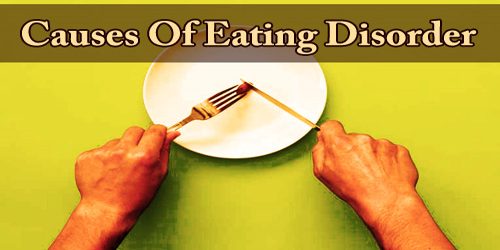
There are many causes of eating disorders. Some of the most common causes are:
Genes
Genes play an important role in the development of these disorders. If someone has a family history of eating disorders, they are more likely to develop one themselves. Sometimes, genes can also make people more prone to developing other mental health disorders, such as depression or anxiety.
Peer Pressure
Peer pressure is another common cause of these disorders. Young people may feel pressure from their friends to be thin or to diet. They may also feel pressured to engage in unhealthy weight-loss behaviors, such as purging or excessive exercise. There are also social pressures to have a certain body type.
Media Images
The media is often blamed for the prevalence of eating disorders. The images we see in magazines and on television can be very damaging and can cause people to develop an unhealthy body image. These images often portray unrealistic beauty standards, which can lead to feelings of inadequacy and self-consciousness.
Socioeconomic Factors
There are also socioeconomic factors that contribute to the development of eating disorders. People who come from a low-income background or who live in a high-stress environment may be more likely to develop an eating disorder. This is because they may be more vulnerable to the negative effects of stress and poverty.
Society’s Standards of Beauty
Society’s standards of beauty are also a contributing factor to eating disorders. People are often bombarded with images of “perfect” bodies and they may feel like they need to have the same body type in order to be successful or happy. This can also be very damaging and can lead to feelings of self-hatred.
Traumatic Events
Traumatic events can also lead to the development of eating disorders. Some people may use food as a way to cope with difficult emotions or traumatic experiences. They may also use food to punish themselves or to numb their feelings.
Risk Factors For Eating Disorders
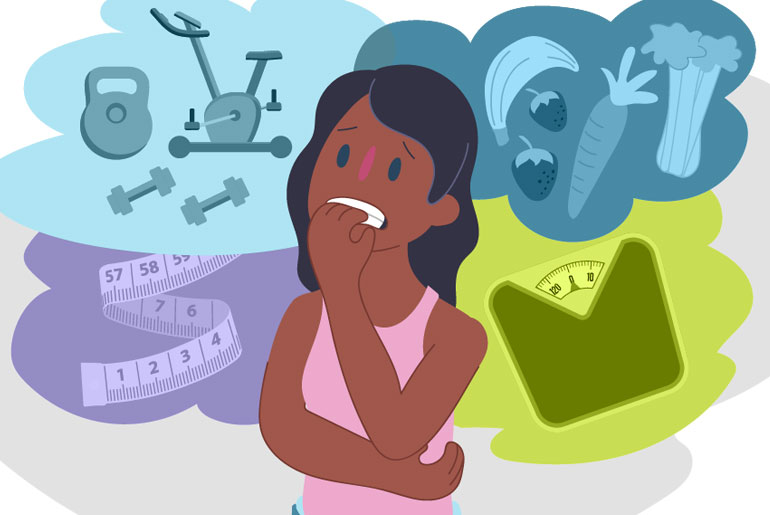
There may be many risk factors for eating disorders, but not everyone who experiences these risk factors will develop an eating disorder. Some of the most common risk factors are:
Family History
Genes play an important role in the development of eating disorders and if someone has a family history of eating disorders, they are more likely to develop one themselves.
Age
Age is also a risk factor for eating disorders. Young people are more likely to develop an eating disorder than adults. Sometimes, eating disorders can start in childhood or adolescence and may continue into adulthood.
Gender
Gender is also a risk factor for eating disorders. Women are more likely to develop an eating disorder than men, but the number of men who are affected by eating disorders is increasing.
Race/Ethnicity
There is some evidence that certain races and ethnicities are more likely to develop this disorder. Some studies have shown that white women are more likely to develop anorexia nervosa, while black women are more likely to develop bulimia nervosa.
Sexual Orientation
People who identify as lesbian, gay, bisexual, or queer (LGBTQ) may be at a higher risk for developing eating disorders. This is because they often experience discrimination and homophobia which can lead to feelings of isolation and stress.
Mental Health Disorders
Sometimes, people who have other mental health disorders, such as anxiety or depression, are more likely to develop an eating disorder. This is because they may use food as a way to cope with their mental health symptoms.
Substance Abuse
People who abuse drugs or alcohol are also at a higher risk of developing an eating disorder. This is because substance abuse can be very damaging to the body and can lead to unhealthy weight-loss behaviors.
Diagnosis of Eating Disorders
 The diagnosis of eating disorders can be very tricky because there are no specific tests that can be used to determine if someone has an eating disorder. The only way to diagnose is by looking at a person’s symptoms and by conducting a thorough interview.
The diagnosis of eating disorders can be very tricky because there are no specific tests that can be used to determine if someone has an eating disorder. The only way to diagnose is by looking at a person’s symptoms and by conducting a thorough interview.
It is also very difficult to distinguish between an eating disorder and another mental health condition, such as depression or anxiety. This is because many of the symptoms of eating disorders overlap with other mental health conditions.
Sometimes there are many different factors that contribute to the development of eating disorders. It is important to remember that there is no one cause of eating disorders and that there are many different factors that can contribute to their development.
There are many tests that doctors may perform to try and determine the cause of your eating disorder. A doctor will usually start by asking you about your symptoms and when they began. They will also ask about your family history and any other mental health conditions you may have.
Your doctor may also perform a physical examination to look for signs of malnutrition or dehydration. They may also order blood tests to check for abnormalities in hormone levels or thyroid function.
Treatment for Eating Disorders
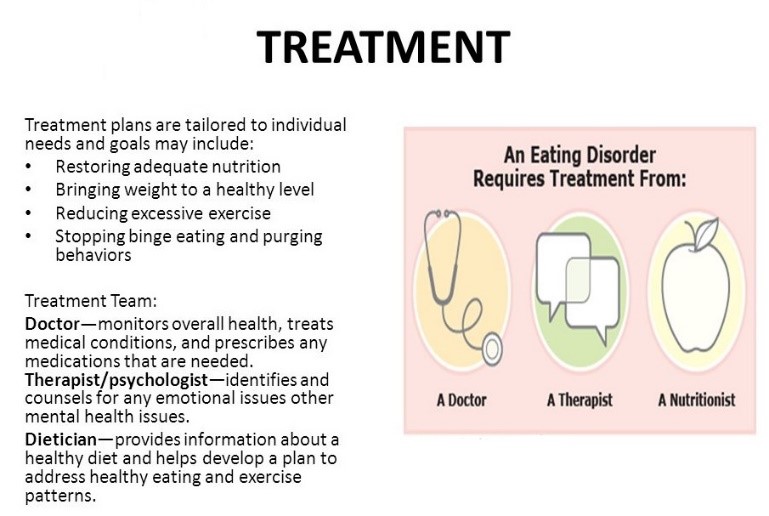
There are many different types of treatment for eating disorders. Some common treatments include:
Psychotherapy
Psychotherapy is often one of the first treatments recommended for people with eating disorders. This type of therapy helps people understand the thoughts and emotions that contribute to their eating disorder. It can also help people develop healthier coping skills and learn how to deal with difficult emotions.
Family Therapy
Family therapy is often recommended for people who have a family history of eating disorders. This type of therapy helps families understand the dynamics that may contribute to the development of an eating disorder. It can also help families learn how to provide support and encouragement for their loved ones.
Medication
There are certain medications that may be prescribed for people with eating disorders. These medications can help stabilize moods, control cravings, or regulate hunger signals. There can be medications such as antidepressants, antipsychotics, and mood stabilizers.
Nutrition Counseling
Nutrition counseling is often recommended for people with eating disorders. This type of counseling can help people develop healthy eating habits and learn how to make balanced meals. It can also help people learn how to deal with food cravings and emotional eating.
Eating Disorder Centers
There are also specialized treatment centers that offer intensive programs for people with eating disorders. These centers offer a variety of treatments, including psychotherapy, family therapy, nutrition counseling, and medication management.
How To Prevent Eating Disorders?
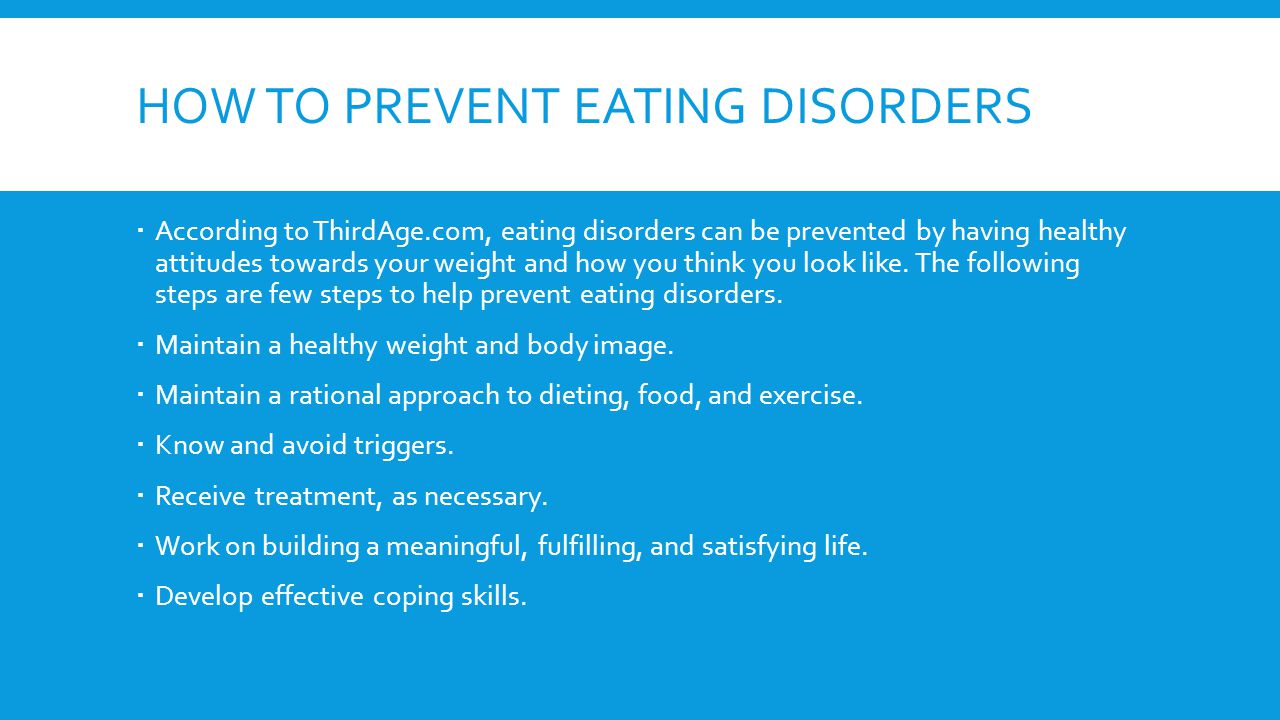
There are many ways to prevent these disorders. Some of these include:
Educate Yourself
You can always educate yourself about these disorders and their signs of them. This can help you be more aware of any potential problems and allow you to seek help early on.
Don’t Diet
One of the best ways to prevent these disorders is to avoid dieting. Diets often lead to unhealthy food choices and feelings of guilt and shame when someone “fails” at their diet.
Be Supportive
You can also be supportive of your friends and loved ones who are struggling with eating disorders. This includes being non-judgmental, listening without interrupting, and being there for them when they need it.
Monitor Media Consumption
Another way to prevent these disorders is by monitoring media consumption. Be mindful of the images that you see in magazines, TV, and online. Try to focus on images that are healthy and positive.
Be Active
Lastly, you can be active in preventing these disorders by participating in physical activity. Exercise releases endorphins which can help improve moods and reduce stress levels.
Make Sure You’re Getting Enough Nutrients
It’s also important to make sure you’re getting enough nutrients, especially if you are struggling with an eating disorder. You can do this by eating a variety of healthy foods and ensuring that you’re meeting your daily calorie needs.
Conclusion
Eating disorders are serious mental illnesses that can have a negative impact on your physical and emotional health. If you or someone you know is struggling with an eating disorder, it’s important to seek help. There are many different types of treatment available, including psychotherapy, family therapy, medication management, and nutrition counseling. You can also prevent eating disorders by educating yourself about them, not dieting, being supportive of friends and loved ones who struggle with them, monitoring media consumption, being active in physical activity, and making sure you’re getting enough nutrients.
A Word From Therapy Mantra
Your mental health — your psychological, emotional, and social well-being — has an impact on every aspect of your life. Positive mental health essentially allows you to effectively deal with life’s everyday challenges.
At Mantra Care, we have a team of therapists who provide affordable online therapy to assist you with issues such as depression, anxiety, stress, relationship, OCD, LGBTQ, and PTSD. You can take our mental health test. You can also book a free therapy or download our free Android or iOS app.
